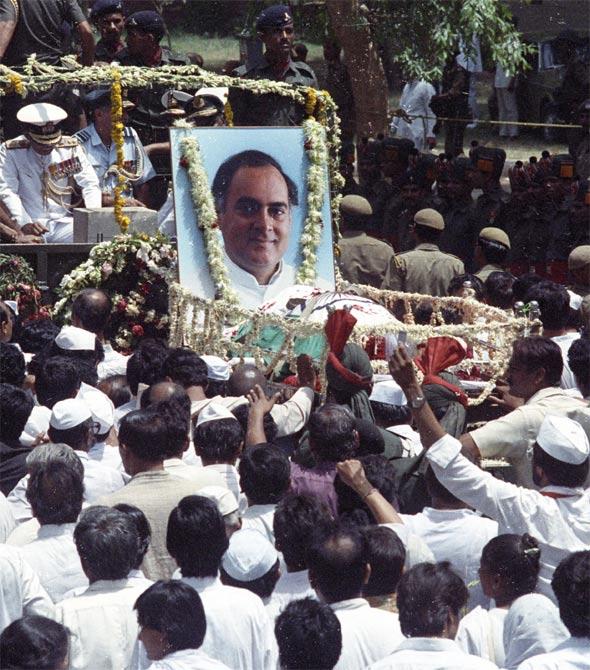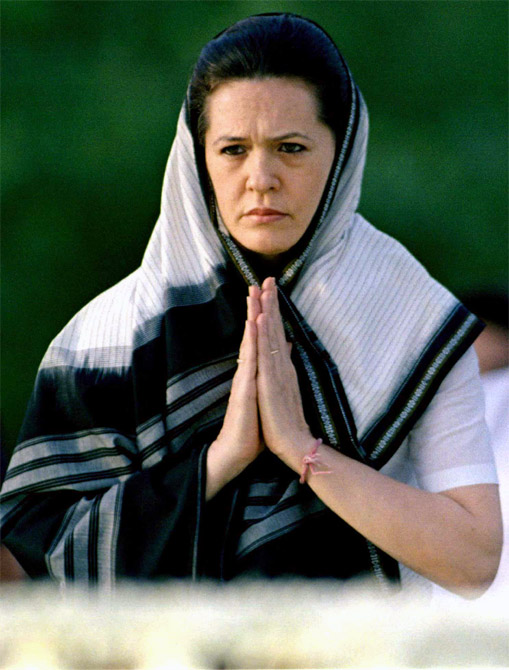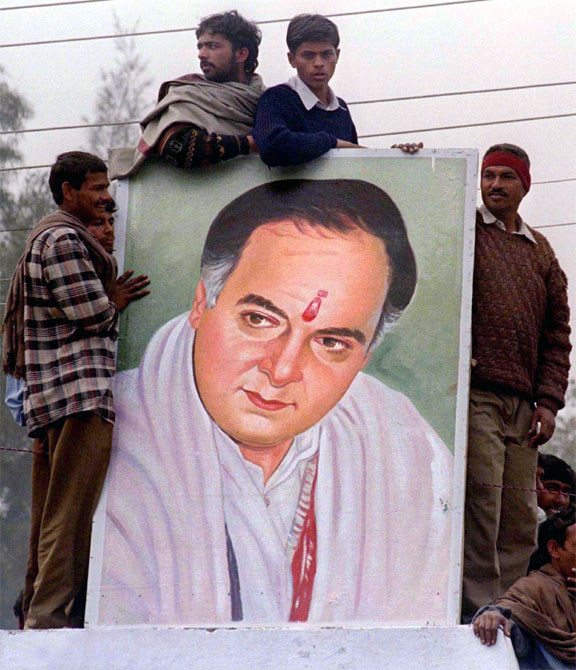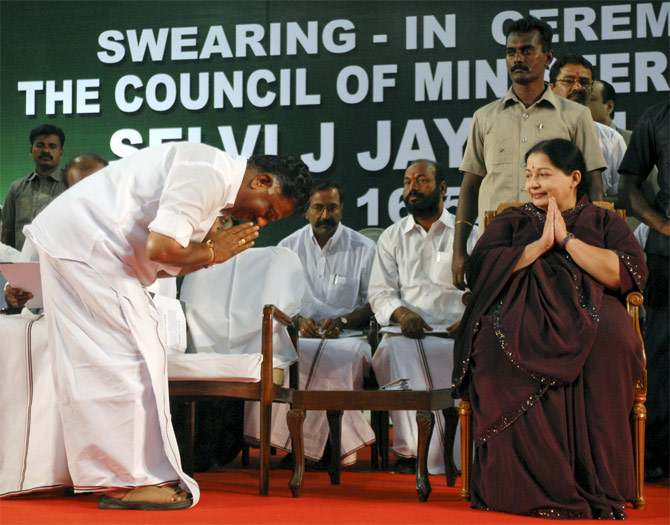 | « Back to article | Print this article |
Pranab could have taken a decision on Rajiv's killers
There are various factors that should feature in judging the fate of Rajiv Gandhi's killers, says Shubhashis Gangopadhyay
The Supreme Court has commuted the death sentences of three of former Indian Prime Minister Rajiv Gandhi's killers to life imprisonment. Its argument is that the central government has not been able to decide on the convicted killers' mercy plea even 11 years after they were sentenced.
The agony of not knowing whether they will live or die was considered by the apex court to be unfair to the three convicted killers. They also pointed out that the mercy pleas of other convicts on death row were decided upon much faster, sparing them this agony.
Indeed, among the first things that the current president decided upon on assuming office was to deny the mercy pleas of Ajmal Kasab, convicted in the 26/11 terror attack, and of Afzal Guru, convicted in the attack on Parliament.
He could have taken a decision on Rajiv Gandhi's killers at the same time, but did not do so -- though they were convicted before the two who were hanged.
According to our laws, a convict sentenced to life imprisonment can be released for "good behaviour" if he or she has served a term of at least 14 years in jail. The state government can take the decision to release the prisoner.
Click on NEXT for more...
Most civilised nations do not have the death penalty
Immediately after the Supreme Court’s decision, Tamil Nadu Chief Minister J Jayalalithaa announced that she would release the seven people convicted of killing Rajiv Gandhi, four of whom had been given life sentences and three of whose death sentences have been commuted to life by the Supreme Court.
However, given that the convicts were prosecuted under a central law, many feel that the state government has to consult the central government before taking any decisions.
Jayalalithaa has given three days to the central government to respond and feels that, while she has to consult the central government, she need not seek the Centre's approval.
The central government has appealed to the Supreme Court against the state's decision and the court has stayed the release for now, subject to a hearing of the appeal on March 6.
Most civilised nations do not have the death penalty since they consider it immoral and unethical to take one's life, especially as a collective decision of the ‘State’.
Click on NEXT for more...
Punishing anyone for anything requires justification
In India, too, many are opposed to the death penalty. These include judges and lawyers, as well as both the wife and the son of Rajiv Gandhi.
However, the son, Rahul Gandhi, has lamented that if a prime minister's killers can be pardoned, then how can the aam aadmi expect justice in this country.
The attack on the prime minister, many will say, is even more heinous a crime than the attack on Parliament, for which Afzal Guru was hanged.
Indeed, the Bharatiya Janata Party has sided with the Congress and suggested that Jayalalithaa is playing identity politics.
If what they say is true, this would imply that sections of the Tamil community have been so aggrieved by India's engagement under Rajiv Gandhi with Sri Lanka and the Liberation Tigers of Tamil Eelam that they are willing to overlook the enormity of the killing of a prime minister.
In general, punishing anyone for anything requires justification. When society punishes someone, the punished pays but society has no direct gains. After all, how is society benefited if someone spends time in jail?
There can be only two reasons: (a) time in jail reforms the convict and enables him or her to become a good citizen or (b) the punishment acts as a deterrent to others who would now think twice before committing a similar crime.
If (a) works then incarceration for life cannot be supported because a reformed person should be allowed to live openly in society. Indeed, that is why we have the provision of releasing for good behaviour convicts sentenced to life imprisonment after they have spent 14 years in prison.
However, if (b) is the reason for the punishment, then one has to consider whether 14 years in prison are sufficient to act as a deterrent to others. Clearly, Rahul Gandhi's statement suggests that he does not think so.
Click on NEXT for more...
One cannot play politics with the law
If what the BJP is saying is right, then it is indeed very serious.
One cannot play politics with the law in a country that believes in the rule of law. The most important aspect of the rule of law is equity -- in other words, everyone is equal in the eyes of the law regardless of whether one is from the Congress, the BJP or Tamil Nadu.
This is what assures every citizen that even though he or she is transferring power to the government, the latter will not use this power to discriminate against citizens.
It is up to the Tamil Nadu government to dispel this notion, to convince every Indian that its decision is not the result of any electoral calculations. Citizens of the country have only one overriding identity: that of being an Indian.
Tamils have a right to feel aggrieved about India's engagement with Sri Lanka and the LTTE. However, it is also their responsibility to convince every Indian that the reason for their decision to release the convicted killers is not that they are aggrieved Tamils but that the law -- and its intent -- is being served by releasing them.
After all, they were convicted by a system of law that we are all bound by. If there was a mistake done, there are legal ways to demonstrate that. Using the powers vested in any government is not the way to force a decision -- certainly not if the only consideration is an impending election.
Click on NEXT for more...
TOP photo features you missed last week
Click on MORE to see another PHOTO feature...





